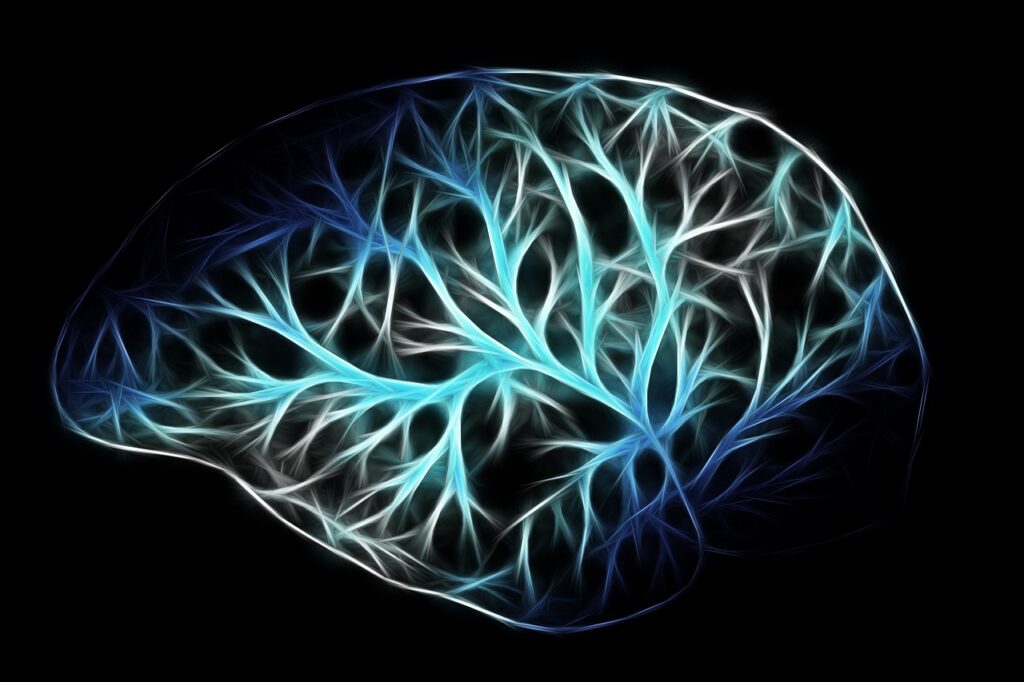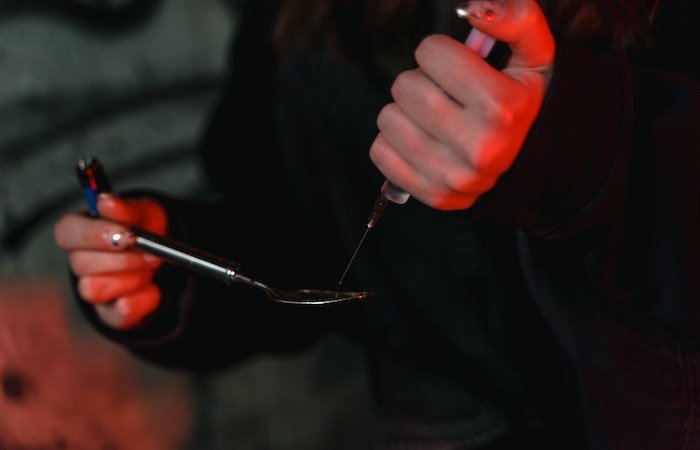Alcohol Rehab in Stockton-on-Tees
When asked about their experience of alcohol and drug rehab in Stockton-on-Tees, former residents remember it fondly. Some describe it as the perfect setting, offering people all the privacy needed to begin a road to recovery.
Close to the town centre, the rehab clinic is nestled on a quiet street. Build around a well-maintained and bright central courtyard, the centre has both picnic tables and a grassy area for its clients to relax. The clinic employs a team of experts and support staff to provide those suffering from alcohol and drug-related problems with all the help they need.
Drug and Alcohol Statistics in Stockton-on-Tees

Each community in the UK has its own set of problems relating to drug and alcohol addiction, partly owing to the increased availability of these substances.
However, areas such as Stockton-on-Tees, located in County Durham, have experienced the brunt of these issues. Many statistical reports have noted a north-south divide in the UK, with more instances of Substance Use Disorder (SUD) recorded in the former portion of the country.
Drug mortality rates in Stockton-on-Tees have been on the rise in recent years, with many tragic statistics surrounding the community. In 2019, the county Durham community lost 62 residents to instances of drug poisoning, as reported by The Office For National Statistics.
These tragic losses indicate a community in need of support, with numerous individuals paying the ultimate price for their substance addiction each year.
The same report has revealed a worrying number of individuals in the county Durham area who are dependent on opiates. As of 2018-2019, the community had an estimated prevalence of 2,311 dependent crack cocaine and opiate users, of which only 1,522 has been engaged in formal treatment.
Sadly, this indicates the potential for many drug users in the community not to be accessing any recovery support. Such individuals are in desperate need of integrated recuperation programmes at a drug and alcohol rehab in Stockton-on-Tees.
Though illicit drug addiction may be a problem in the area, it isn’t the only substance causing debilitating addictions among the population. In their comprehensive report on the impact, alcohol has in different areas of the UK, the LAPE programme made some concerning discoveries about the Stockton-on-tees locale.
In the town, there were 89 deaths in 2020 recorded as a direct result of alcohol poisoning and 1,495 hospital admissions due to hazardous drinking in the same year.
Between the years 2017-2019, 109 individuals in Stockton-on-Tees died from alcoholic liver disease: a condition that is entirely preventable if the right treatment is received early on.
For more information on Drug and Alcohol Rehab in Stockton-on-Tees, contact us today on 0800 088 66 86.
The Disease Model of Addiction

It’s equally important for both the direct victims of addiction and their loved ones to understand the disease model of Substance Use Disorder. In the past, much of the population believed that those entering a drug and alcohol rehab in Stockton-on-Tees were doing so purely to change their lifestyle, rather than to treat a condition.
In reality, substance addiction has certain biological components that make it similar to a disorder of the brain. Most experts agree that, like types of cancers and heart conditions, substance use disorders are caused by a complex interaction between environmental, biological, genetic, and social factors.
Principally, repeatedly misusing drugs or alcohol affects the brain in different ways, with many of these changes causing long-term consequences. Areas of the brain involving self-control, stress, and reward, are altered by the intense flood of dopamine caused by substance use.
When we drink alcohol regularly or use drugs frequently, changes occur in the prefrontal cortex of the brain: causing us to repeat dopamine-producing activities such as substance misuse.
As individuals take higher doses of said substance to satiate their increased tolerance, the body must adjust to increased dopamine levels: causing the brain to rely on higher levels of this pleasure hormone.
All this means that when an addicted individual attempts sobriety without medical supervision, they’ll suffer both emotionally and physically as their body stabilises.
These are known as withdrawal symptoms and are often uncomfortable enough to warrant an inpatient detox at a drug and alcohol rehab in Stockton-on-Tees.
For more information on Drug and Alcohol Rehab in Stockton-on-Tees, contact us today on 0800 088 66 86.
What Drug and Alcohol Addiction Does To the Mind and Body

During the process of quitting drugs or alcohol, people’s bodies will respond differently to lesser quantities of a particular substance. Various factors come into play when assessing the risk of experiencing certain withdrawal symptoms: including the specific substance, and pre-existing health concerns.
While one individual may only experience short-term bodily symptoms, others might battle long-term psychological distress.
Short-Term Side Effects of Drug and Alcohol Addiction
Oftentimes, there is a correlation between how high someone’s substance dosage is and how severe their initial withdrawal symptoms may be.
In the short-term, specifically the first 72 hours post-consumption, commonly experienced symptoms include sweating, fatigue, migraines, muscle pains, vomiting, dehydration, sweating, shaking, seizures, and complications which can be fatal.
Though many substance use disorders cause both physical and psychological withdrawal, certain drugs cause one set to develop more.
For instance, alcohol addictions cause mainly physical symptoms in sufferers, while cannabis dependencies lean more towards psychological withdrawal.
While mental symptoms can be just as hazardous as their bodily counterparts, they are rarely fatal. Substance-induced psychological distress can come in the form of anxiety, panic attacks, insomnia, depression, paranoia, drug-induced psychosis, and hallucinations.
Long-Term Symptoms of Drug and Alcohol Addiction
The longer that someone’s substance addiction lasts, the more at risk they are of developing long-term symptoms. In many cases, this can mean being more prone to certain diseases, fertility problems, certain types of cancer, and psychological disruption.
Long-term addiction can also increase the chances of Protracted Withdrawal Syndrome (PWS), whereby symptoms last for months or even years after cessation. PWS symptoms, especially for those recovering from drug use disorders, often include extreme cravings, irritability, and insomnia.
Cravings in particular can hamper day-to-day living and even lead to relapse without sufficient treatment at a drug and alcohol rehab in Stockton-on-Tees. Becoming preoccupied with thoughts of substance use can diminish an individual’s work performance, interrupt the time spent with loved ones, and generally impact their mental well-being.
Moreover, chronic alcohol consumption over many years will increase an individual’s risk of developing liver diseases and conditions that impair liver function.
Alcohol Liver Cirrhosis and Alcohol-Related Liver Disease are the two primary examples, with thousands of individuals succumbing each year to these preventable conditions.
While both the short and long-term effects of addiction are a cause for concern, both can be prevented by receiving the appropriate long-term care.
At a drug and alcohol rehab in Stockton-on-Tees, patients are offered withdrawal-prevention treatment, as well as medical and psychological support to stop long-term symptoms from developing.
For more information on Drug and Alcohol Rehab in Stockton-on-Tees, contact us today on 0800 088 66 86.
Diagnosing Addiction

Rather than simply conducting a blood or urine sample, diagnosing a substance use disorder is an intricate process involving a medical, psychological, and behavioural assessment. By conducting a comprehensive evaluation, specialists can refer patients for treatment specifically catered to their unique addictions and needs.
During a diagnostic evaluation, a GP or doctor will need to ascertain the extent to which substance use is impacting a patient’s daily life.
They’ll ask questions about whether the use of drugs or alcohol has increased over time, and how their consumption is affecting occupational, educational, and social areas of their life.
Before undertaking a formal assessment under clinical supervision, an addicted individual must realize the potential severity of their situation. Before seeing a doctor, they can check whether they fit the general criteria of a substance addiction by taking a self-assessment.
For those who suspect they may be drinking too much, their first port of call will be to complete the Alcohol Use Disorder Identification Test (AUDIT). A method of screening for alcohol addiction approved by WHO, this assessment can be undertaken anywhere in less than 10 minutes.
To receive a score that indicates the seriousness of their situation, respondents must answer 10 brief questions. Some of these are designed to estimate how much someone drinks, while others focus more on how alcohol has impacted the individual’s social life and relationships.
- The AUDIT scoring system provides a vital framework for intervention to help respondents cut down their drinking or seek further treatment. In general, receiving a score of 5 or less means you’re unlikely to need clinical assistance.
- However, those with an AUDIT score of more than 10 should consider treatment at a drug and alcohol rehab in Stockton-on-Tees.
For other substance-related disorders, individuals with a suspected addiction can utilise the DSM-5 criteria: considered the medical gold standard for screening a variety of physical and psychological conditions. To receive instruction to undertake further treatment, respondents must meet at least two of the DSM-5’s 11-part criteria.
Some of these include consuming larger amounts of a substance than intended or for a longer amount of time than planned and giving up pastimes or social activities as a result of substance use. Elements of the criteria also cover an individual’s risk of withdrawal and aim to ascertain how high someone’s substance tolerance is.
For more information on Drug and Alcohol Rehab in Stockton-on-Tees, contact us today on 0800 088 66 86.
Pros and Cons of Public Addiction Treatment

Here in the UK, publicly-funded addiction treatment is delivered via the NHS, with recovery programmes available in most hospitals across the country.
As most people are already aware, NHS treatment is free at the point of contact, providing a desirable level of financial protection for those who cannot afford private care at a drug and alcohol rehab in Stockton-on-Tees.
Despite being free, the care provided by NHS programmes is generally high quality, with patients having access to a team of specially trained psychiatrists, consultants, and addiction specialists.
Recovery programmes often offer the same medications, styles of therapy, and long-term support found in private centres, although this treatment is less likely to be personalised.
Another significant advantage of NHS treatment is that patients can undertake recovery while living at home and continuing with their daily routines. This is particularly applicable to patients with less severe addictions, who may find the intensive nature of private treatment to be overwhelming.
If patients are deemed by their care team to have a lower risk of relapse, they’ll be offered a regular outpatient programme consisting of one or two appointments per 7 days.
If they are deemed to have a moderate addiction, an intensive outpatient programme will be recommended, which includes multiple therapy appointments each week with the opportunity to increase the frequency of sessions if needed.
Despite the advantages offered by NHS-funded care at a drug and alcohol rehab in Stockton-on-Tees, the system is far from perfect. In recent years, various crises have emerged involving high waiting times, budget cuts, and understaffing.
NHS waiting times have sky-rocketed since the COVID pandemic, meaning that those needing immediate treatment must wait for extended periods for an appointment, or even a referral. Considering the time-sensitive, often chronic nature of SUD, waiting for treatment can have life-threatening implications.
These disadvantages are exacerbated by the limited nature of NHS programmes. In more cases than not, outpatient treatment is offered instead of comprehensive residential care, meaning that a patient’s chances of relapse are increased.
Remaining at home during recovery might be convenient, but it exposes individuals to all kinds of relapse triggers and temptations to use.
For more information on Drug and Alcohol Rehab in Stockton-on-Tees, contact us today on 0800 088 66 86.
Pros and Cons of Private Addiction Treatment

To avoid receiving outpatient treatment as the basis of care, those with chronic addictions must enter a private drug and alcohol rehab in Stockton-on-Tees. This way, they can receive specialised, on-site care that’s catered towards their unique needs.
Because private clinics are unburdened by the same staff shortages and budget cuts as the NHS, treatment programmes are carefully tailored to each person that walks through its doors.
This personalised approach to recovery allows for the treatment of the whole individual: with programmes addressing unique health problems, co-occurring disorders, and substance-specific treatment concerns.
Staying overnight at a private inpatient clinic gives patients 24-hour access to the highest quality amenities, including medical supervision, private accommodation, and top-tier entertainment facilities.
Here, individuals will have respite from the pressures and relapse triggers present in the outside world, allowing them to prioritise their well-being and recovery.
In addition to the healing environment of private rehab, addicted individuals will benefit from the swift admissions process offered by these clinics.
Clients can secure a bed within 48 hours in most cases, and within 24 hours in severe instances of substance use disorder. This removes the health risks that come with waiting too long to receive treatment.
Despite these clear advantages, private treatment comes with its burdens: mainly relating to financial inaccessibility.
For many families, the prospect of expensive addiction treatment is simply unfeasible, with many luxury centres costing thousands per week, and tens of thousands for each month of inpatient care.
However, more affordable options are becoming increasingly available here in the UK. A residential programme in a budget-friendly clinic may only cost around £1,000 per week: equating to around £4,000 per month of all-inclusive treatment.
During this time, clients will have their meals and accommodation covered, alongside the tailored treatment they’ll receive for their addiction.
Furthermore, a private drug and alcohol rehab in Stockton-on-Tees will likely offer clients bespoke payment plans. This often comes in the form of segmented payments whereby clients can split the cost of rehab care into instalments.
For more information on Drug and Alcohol Rehab in Stockton-on-Tees, contact us today on 0800 088 66 86.
Rehab Admission: Entering a Drug and Alcohol Rehab in Stockton-on-Tees

Once you’ve decided that now is the time to enter a drug and alcohol rehab in Stockton-on-Tees, two routes to admission present themselves. Individuals can either carry out the research themselves and enrol via self-referral or seek the help of an expert provider such as Rehab Recovery.
We provide personalised referral assistance to help addicted individuals access the most optimal rehab clinic in their immediate area, or elsewhere in the Stockton-on-Tees region.
Through their knowledge of the addiction treatment system, our team recognises that no two clinics are the same: making it their mission to help individuals access the information they need to evaluate their various options.
You can undertake our bespoke consultation free of charge, without even having to leave the comfort of your own home. Our health evaluations are conducted over the phone in a non-judgemental, professional manner. This is so we can assess your needs effectively and start searching for a rehab centre to suit your substance dependence, needs, and unique personality.
The questions we ask during this pre-admittance assessment will be non-invasive, yet hone in on specific elements of your condition.
An experienced admissions officer will make certain queries about an individual’s physical and mental health, medical history, as well as any additional health requirements and preferences for treatment.
With this information in hand, our team can begin building a selection of suitable rehab clinics to posit to the individual and their family. These clinics will be chosen based on their reputability, standard of care, location in or around Stockton-on-Tees, as well as the individual’s budgetary preferences.
For more information on Drug and Alcohol Rehab in Stockton-on-Tees, contact us today on 0800 088 66 86.
Rehab For Alcohol Use Disorder (AUD) In Stockton-on-Tees

While its consumption is accepted as the norm in most areas of society, alcohol is a dangerous psychoactive substance with a high addictive potential. Without treatment at a drug and alcohol rehab in Stockton-on-Tees, AUD victims risk a host of irreversible health effects, even risking death.
While undertaking rehabilitation, patients will work towards a life without alcohol: building a relapse prevention plan by resolving underlying psychological issues. However, before beginning therapy, addicted individuals must remove the alcohol from their bodies in a way that is comfortable, safe, and medically supported.
Once they’ve enrolled in their inpatient programme, patients are assigned a care team to help them progress through a medicated detox. Usually taking between 7-14 days, returning the body to an alcohol-free state involves a series of measures to prevent withdrawal and enhance the patient’s well-being.
The level of medical intensity needed to avoid Alcohol Withdrawal Syndrome (AWS) depends on the magnitude of someone’s alcohol addiction, and how long they’ve been addicted.
Those with chronic AUD are more at risk of developing Delerium Tremens and are often prescribed Benzodiazepines to stop them from experiencing seizures.
Cravings can be tackled by administering Naltrexone: a substance that prevents patients from feeling the positive effects of alcohol, while Clonidine helps to lower blood pressure and an elevated heart rate.
Throughout the detox, your care team will regularly assess you for any withdrawal complications, and prescribe medical and holistic treatment accordingly.
To allow further work towards lifelong recovery and relapse prevention, inpatient programmes include a variety of services that can be personalised to each patient. Individual counselling can help subjects avoid old patterns of alcohol use while understanding what drove them to drink hazardously in the first place.
For more information on Drug and Alcohol Rehab in Stockton-on-Tees, contact us today on 0800 088 66 86.
Rehab For Cannabis in Stockton-on-Tees

Containing the brain-altering chemical known as THC, cannabis is a calming drug helping countless users enter a more relaxed state of mind. However, becoming dependent on the effects of cannabis over time can cause full-blown addictions worthy of care at a drug and alcohol rehab in Stockton-on-Tees.
After admitting that they have a problem, hazardous cannabis users should seek out the expertise of a specialised rehabilitation clinic. While it’s possible to recover from cannabis use disorder sans professional support, the road to sobriety is harder to travel down alone.
Instead, addicted individuals can maximise their chances of long-term abstinence by signing up for a 28-day inpatient programme. Typically, these begin with a supervised detox to gradually remove cannabis from the body and flush toxins from the system.
While medications to support detox aren’t always necessary, remaining at an inpatient clinic will ensure patients escape relapse triggers and exposure to cannabis.
A time frame of several days is usually sufficient to remove cannabis from the body and prepare patients for further therapeutic support at a drug and alcohol rehab in Stockton-on-Tees.
For many individuals, cannabis addiction is the result of underlying issues about mental illness, environmental issues, or previous trauma. It’s therefore imperative to treat the root cause via lifestyle counselling, holistic therapy, and behavioural interventions such as Dialectical Behavioural Therapy.
Alongside these treatment strategies, patients at rehab for cannabis will receive motivational support for the duration of their recovery programme. Techniques such as Motivational Interviewing can help patients re-connect with their values, while Contingency Management provides physical rewards for continued sobriety.
For more information on Drug and Alcohol Rehab in Stockton-on-Tees, contact us today on 0800 088 66 86.
Rehab For Heroin in Stockton-on-Tees

Heroin belongs to a group of drugs commonly referred to as opioids or narcotics, all of which are highly addictive drugs causing insidious substance use disorders. Because repeated heroin use changes the way the brain operates and causes impaired reasoning, individuals may live in a state of denial for many years.
Like many substances, heroin changes the way the reward and motivation pathways in the brain operate, meaning integrative care is needed at a drug and alcohol rehab in Stockton-on-Tees. To make sure patients tackle both their physical and psychological heroin addiction, as well as leave enough time for relapse prevention planning, rehab stays of 60 days or more are encouraged.
The first post-admission phase is detox: a delicate process that can take anywhere from 5 days to two weeks, or even more. The duration and detox strategy use will depend on how long someone has been using heroin, their tolerance to the drug, and their method of use (smoking, injecting, etc).
Once these factors have been determined, patients will receive their personalised detox plan, which often includes Medication Assisted Therapy (MAT) to tackle withdrawal symptoms. Adverse symptoms may appear a mere 12 hours after use and are flue-like in the ways that they manifest.
To inhibit the worst, potentially life-threatening symptoms, substitution therapy is implemented early in the detox phase. This means replacing heroin with less addictive opioids such as Buprenorphine, and sometimes Methadone. These opioid agonists bind to the same brain receptor of heroin, but without producing the same high or leading to the same withdrawal symptoms.
To prevent relapse or future opiate use, the behavioural and psychological aspects of heroin addiction must be addressed. Motivational counselling and behavioural interventions can change the way someone views substance use while helping them build an arsenal of long-term coping mechanisms.
It’s also important that patients at a heroin rehab clinic engage in group support activities. Peer evaluation and guidance sessions are an important part of any effective treatment programme: providing patients with a safe space to talk over their heroin recovery journeys. They’ll also be in the presence of other patients, most of whom understand the struggles of opioid addiction first-hand.
For more information on Drug and Alcohol Rehab in Stockton-on-Tees, contact us today on 0800 088 66 86.
Rehab For Cocaine in Stockton-on-Tees

While cocaine can be used for valid medical purposes such as local anaesthesia, this powerful stimulant drug is more well-known for its recreational use. Because of this, many individuals won’t even recognise their addiction, let alone the need for treatment in a drug and alcohol rehab in Stockton-on-Tees.
Due to its highly addictive nature, it’s common for people to lose control of their cocaine intake and continue a downward spiral of psychological and physical addiction. Known in the medical community as Cocaine Use Disorder, this condition causes victims to experience severe adverse reactions requiring at least one month of rehab care.
Much like other addictions, cocaine dependencies require a carefully planned medically-supervised detox. However, it’s important to note that while the risk of physical withdrawal is lower in cocaine detox, the danger of experiencing psychological symptoms is higher, due to how this drug changes our brain chemistry.
As such, detoxification in rehab clinics for cocaine focuses more on the emotional welfare of the patient, and less on administering medication to help them feel better physically.
While following a unique tapering schedule, individuals will stay in their detox clinic for the length of time needed to remove cocaine from the body and properly stabilise.
In a safe, clean recovery environment, patients will have the 24/7 medical oversight needed to remain comfortable, alongside various opportunities for counselling. They’ll also receive nutritional support and vitamin supplements to support their digestive system as it returns to normal.
While the focus of cocaine detox isn’t solely on pharmacological support, medications may still be utilised to support ongoing recovery. MAT is particularly important for those with co-occurring mental health disorders, who will have the chance to receive medication for their ongoing mental strife.
SSRIs are often prescribed to those with mood disorders, while patients with anxiety might temporarily receive sedatives or Beta-Blockers.
After a successful detox, it’s important to treat the psychological complications that linger after post-cocaine addiction. Treating the underlying causes of addiction, alongside any mental health issues, is a key way to sustain sobriety long into the future.
For cocaine use disorders, professionals at a drug and alcohol rehab in Stockton-on-Tees usually recommend a 30-60 day therapeutic programme. Treatment protocols often include bespoke behavioural therapies, group training sessions, and holistic therapies such as meditation and yoga to restore mental balance.
For more information on Drug and Alcohol Rehab in Stockton-on-Tees, contact us today on 0800 088 66 86.
Co-occurring Disorders And Addiction

Sadly, it’s not uncommon for those suffering from a substance use disorder to battle a co-existing mental health disorder. Studies have revealed that roughly half of the people in the UK entering rehabilitation for SUD receive treatment under a dual diagnosis.
For these individuals, it’s crucial that they receive a clear diagnosis and that their treatment is fully personalised to both their SUD and co-existing mental health needs.
A psychiatrist at a drug and alcohol rehab in Stockton-on-Tees must ascertain how both illnesses relate to one another by considering environmental, social, and genetic factors.
On one hand, individuals struggling with psychological symptoms may turn to alcohol or drugs as a means of self-medicating their depression, anxiety, bipolar disorder, or other such illness. Conversely, other people find that their chronic substance use has caused long-term psychological damage, leading them to develop a psychiatric condition.
Experts have noted that conditions such as schizophrenia and bipolar disorder carry an increased risk of developing alcohol use disorder, for example. Opioid use disorders have also been linked to the development of severe mental health challenges, especially depressive disorder.
Compared to patients with a single disorder, those with a co-occurring psychiatric illness such as anxiety or depression often require additional treatment or will stay in rehab for longer periods. Oftentimes, they have an elevated risk of withdrawal syndromes during detox and are more likely to encounter relapses further down the line.
Rather than treating both conditions separately, it’s crucial to maintain an integrated approach during recovery at a drug and alcohol rehab in Stockton-on-Tees.
Dual-diagnosis treatment programmes entail a combination of behavioural therapies, medication, and psychoeducational classes intended to increase symptom awareness and management.
For more information on Drug and Alcohol Rehab in Stockton-on-Tees, contact us today on 0800 088 66 86.
More Therapy Styles at a Drug and Alcohol Rehab in Stockton-on-Tees

While the above-mentioned Cognitive Behavioural Therapy approach is coveted in rehab clinics, numerous therapeutic styles are incorporated into each recovery programme. For SUD treatment to be effective, an integrative approach combining multiple personalised strategies is needed.
With this in mind, patients at a drug and alcohol rehab in Stockton-on-Tees are rarely limited to one therapeutic programme. Instead, they’ll encounter a bespoke dose of behavioural interventions, skills training groups, family-based therapies, and alternative methods.
1. Acceptance and Commitment Therapy (ACT)
In theoretical terms, Acceptance and Commitment Therapy is best described as a psychological intervention that has been updated to include more modern principles. Unlike behavioural therapies, ACT aligns its practice with a relatively new model: Relational Frame Theory.
Focusing on mindfulness, Relational Frame Theory aims to improve someone’s psychological flexibility by committing to behavioural change and accepting negative emotions. Psychological flexibility means being able to intentionally act in ways that are beneficial to our lives while learning how to react healthily in the present moment.
These tools have proven incredibly useful in the treatment of SUD: allowing subjects to overcome the negative aspects of their lives by developing a more proactive way of thinking. This allows patients to not only accept the reality of their substance addiction but to overcome setbacks related to this condition: such as relapse triggers.
In their ACT workshops at a drug and alcohol rehab in Stockton-on-Tees, patients will encounter six core values associated with the practice.
These are Acceptance, Cognitive Defusion, Contacting the Present Moment, Self as Context, Values, and Committed Action. While each element has its place in sessions, the main focus is on Acceptance, as suggested by the name.
While many people assume that accepting something means learning how to welcome negative emotions, this isn’t the case. In the ACT, to accept ourselves as we are meant to stop fighting unpleasant sensations or discomfort, and instead, make room to experience them. That way, we can move beyond them.
2. Contingency Management (CM)
Contingency Management (CM) at a drug and alcohol rehab in Stockton-on-Tees uses stimulus control and consequences to change behaviour. Much like motivational enhancement methods, CM helps subjects commit fully to sobriety, not through exploring the reasons for change, but by offering them tangible rewards.
This stems from the Operant Conditioning theory claiming that presenting an incentive or reward soon after the desired behaviour occurs makes the same behaviour more likely to re-occur.
In the context of addiction treatment, CM is used to reinforce behaviours that align with a life of sobriety: with rewards given after passing a toxicology test, or completing a programme of therapy, for example.
Part of the reason behind CM’s popularity among rehab clinics is its adaptability and versatility. The incentives offered to patients can be easily personalised to fit their unique needs, with one individual receiving voucher-based rewards, and another receiving monetary tokens.
3. Dialectical Behavioural Therapy (DBT)

While Dialectical Behavioural Therapy (DBT) is an extension of CBT and borrows many of the same strategies, many differences make it unique. As suggested by the name, Cognitive Behavioural Therapy focuses on cognition and restructuring thought processes, while DBT centres on the emotional aspects of a patient’s life.
Because it was originally designed to treat suicidal ideations and depression, DBT is structured to help patients manage painful emotions. Rather than burying their past trauma and allowing it to fuel their addiction, DBT participants are taught how to understand and accept these difficult feelings.
It’s this balancing act between two opposing processes: acceptance and change, that DBT was based on.
In ancient Greece, the word “dialectical” was used to describe two opposing ideas coming together, and in the context of DBT, this means accepting ourselves for whom we are while taking the time to change and better ourselves.
At a drug and alcohol rehab in Stockton-on-Tees, patients are referred for DBT if they have a history of personal trauma informing their addiction, or a co-occurring mental illness causing difficult emotions to arise.
Sessions will teach them how to live their best and most productive lives by uniting four main concepts: interpersonal skills, mindfulness, emotional regulation, and distress tolerance.
In group DBT environments, participants are more likely to focus on interpersonal skills: changing the way they communicate to get the most out of their relationships with others. In one-to-one sessions, there’s more emphasis on distress tolerance and mindfulness, with activities personalised to the individual’s history.
4. Family Therapy
Although many treatment programmes are individualised, this doesn’t mean that they exclude a patient’s family and friends from the recovery process. At a drug and alcohol rehab in Stockton-on-Tees, professionals understand that the key to sustaining sobriety is for patients to have encouragement and support from their loved ones.
As such, Family Therapy is implemented to improve relationships and communication in line with an individual’s treatment plan. While the emphasis is on immediate family, participants don’t necessarily have to be blood relatives of the addicted individual.
The most important thing is that they are important to the patient’s continued well-being.
While Family Therapy is part of an individual’s therapeutic plan, its methods prove to be just as important for the loved ones involved.
Through attending these sessions, Concerned Significant Others (CSOs) can learn ways to be more supportive, while also healing themselves from the emotional distress caused by their loved one’s SUD.
Furthermore, Family Therapy methodology can help resolve conflict that may not have been addressed before. In many cases, substance misuse is a result of negative events, some of these within a family unit, that have culminated to form an emotionally distressing situation whereby substance misuse is used to cope.
For example, either psychological or physical childhood neglect can inform addiction further down the line as the individual attempts to bury their trauma.
To help resolve these issues, family behavioural therapists utilise various activities within their weekly, or bi-weekly sessions. Methods include behavioural techniques (skills training and education), psychodynamic techniques (problem-solving), and structural techniques (re-setting boundaries).
5. Holistic Therapy (HT)
Although treating one element of substance addiction may induce temporary sobriety, it’s important to replace unhealthy habits with positive alternatives.
This is why at a drug and alcohol rehab in Stockton-on–Tees, patients are provided with Holistic Therapy Programmes: aiming to treat their minds, body, and soul.
Unlike more mainstream psychotherapies, HT was built upon the belief that human beings are more than just their physical or mental symptoms. Instead, achieving well-being relies upon uniting an individual’s mental, bodily, and spiritual health, as proposed by the word “holistic”: meaning “whole”.
Treating someone’s mental health in HT terms means providing therapeutic and mindfulness-based support while treating the body means maintaining overall fitness. Additionally, treating the spirit involves restoring hope and motivation through a combination of healing activities.
Such activities are included for their longevity and health benefits: including a range of creative, exercise-based, and meditative endeavours. When completed alongside traditional therapies at a drug and alcohol rehab in Stockton-on-Tees, HT can inspire meaningful change in someone’s daily life for years to come.
While each clinic operates differently and offers a different combination of holistic therapies, certain activities are popular across the board.
Examples include guided meditation, yoga workshops, massage therapy, routine exercise, art therapy, and musical sessions. Patients might even experience equine therapy: a unique opportunity to build trust and learn to emotionally regulate through caring for horses.
6. Motivational Enhancement Therapy

Helping patients remain motivated while changing their substance-abusing behaviours is a key part of treatment at a drug and alcohol rehab in Stockton-on-Tees.
This is because while someone will attend rehab willingly, they’ll likely experience highs and lows in motivation as their treatment progresses, which is a natural part of the quest for sobriety.
As a structured, goal-oriented form of counselling, Motivational Enhancement Therapy (MET) helps patients feel empowered in their decisions and commit fully to making changes. Delivered over just a few sessions, an intensive course of MET gives subjects the tools needed to evaluate their behaviour, identify what motivates them personally, and optimise autonomy in their recovery process.
However, as sparking rapid motivation isn’t a straightforward process, sessions must be conducted by a therapist with specialist training in MET practices. By emphasising collaboration, MET counsellors use a variety of methods to evoke their patient’s thoughts and feelings.
This includes implementing the five main components of the MET philosophy: expressing empathy, acknowledging discrepancies, avoiding arguments, supporting self-efficacy, and accepting resistance.
Avoiding arguments, for example, means a therapist must develop a rapport with their client that feels non-intrusive, and empathetic at all times.
For more information on Drug and Alcohol Rehab in Stockton-on-Tees, contact us today on 0800 088 66 86.
Staging an Intervention For a Loved One to Enter Treatment

In an ideal world, everyone suffering from substance addiction would seek treatment willingly at a specialised rehab clinic, but unfortunately, this isn’t always the case.
Addiction is a disease that can propel those suffering into a state of denial, wherein they believe that their condition isn’t worth treating, or that they don’t have a problem with drugs or alcohol.
While being trapped in this situation is detrimental to the SUD victim, it also negatively impacts the loved ones trying to get them into formal treatment.
Fortunately, a solution to this problem does exist; here at Rehab Recovery, we help numerous families with stage-structured interventions: a formal meeting allowing loved ones to express their concerns to the addicted person in their lives.
- By meeting with friends and family in a safe, comfortable environment, it is hoped that the subject of the intervention will come to terms with needing help.
- Rather than simply arguing about their loved one’s addiction and creating needless confrontation, intervention participants are encouraged to lovingly express their concerns.
To share how an individual’s substance use has impacted them negatively, loved ones must detail specific behavioural incidences. For instance, the addicted person might have abandoned responsibilities at home and in the workplace or said something out of character to their family members.
Another key part of orchestrating an intervention is to develop a plan of action: specifically organising treatment at a drug and alcohol rehab in Stockton-on-Tees.
If their addicted loved one is receptive to the intervention, time is of the essence, and their family should have chosen an appropriate rehab clinic in advance.
To help plan this future transition, and indeed all aspects of the intervention process, it’s often best to contact an intervention specialist.
By choosing an interventionist with experience and expertise, families are safe in the knowledge that the logistical side of the process is fully planned.
In addition, these professionals will help guide participants in getting across what they wish to say to their addicted loved ones. This is often in the form of writing impact statements, rehearsing potential conversations, and planning measures to take if the subject is non-receptive.
If you’re unsure of how to get in touch with an interventionist or need help planning an addiction intervention for someone dear to you, our team at Rehab Recovery are here to help.
Simply call our 24-hour helpline on 0800 088 66 86 for immediate, confidential advice.
Getting Help

To enquire about beginning rehab in Stockton-on-Tees, contact Rehab Recovery’s admissions team today at 0800 088 66 86.
References
[1] County Durham Joint Strategic Needs Assessment (JNSA) InstantAtlas Durham – Living Well (durhaminsight.info)
[2] Deaths related to drug poisoning in England and Wales: 2020 registrations Deaths related to drug poisoning in England and Wales – Office for National Statistics (ons.gov.uk)
[3] Local Alcohol Profiles for England https://fingertips.phe.org.uk/profile/local-alcohol-profiles/data#page/1/gid/1938132984/pat/6/ati/401/are/E06000001/iid/93763/age/1/sex/4/cat/-1/ctp/-1/yrr/1/cid/4/tbm/1
[4] Adult Substance Misuse Treatment Statistics 2019 to 2020 https://www.gov.uk/government/statistics/substance-misuse-treatment-for-adults-statistics-2019-to-2020/adult-substance-misuse-treatment-statistics-2019-to-2020-report
[5] Residential Addiction Treatment https://www.rehab-recovery.co.uk/addiction-treatments/residential/
[6] The Brain Disease Model of Addiction https://www.hazeldenbettyford.org/education/bcr/addiction-research/brain-disease-model-ru-316
[7] Cognitive, Clinical, and Neural Aspects of Drug Addiction https://www.google.com.au/books/edition/Cognitive_Clinical_and_Neural_Aspects_of/MpvJDwAAQBAJ?hl=en&gbpv=0
[8] Bipolar Disorder and Addiction https://www.rehab-recovery.co.uk/addiction-treatments/dual-diagnosis/bipolar-disorder-addiction
[9] AUDIT https://auditscreen.org/
[10] Alcoholism and Alcohol Addiction https://www.rehab-recovery.co.uk/addictions/alcoholism/
[11] DSM-5 Criteria for SUDhttps://www.addictionpolicy.org/post/dsm-5-facts-and-figures
[12] Private Alcohol Rehab https://www.rehab-recovery.co.uk/alcohol-rehab/private/
[13] Principles of Drug Addiction Treatment: A Research-Based Guide (2nd Ed.) https://books.google.co.th/books?id=mtMdJ3qqSnQC&printsec=frontcover&dq=addiction+treatment&hl=en&sa=X&ved=2ahUKEwiDlMP3zob3AhXiwjgGHYJtDZ8Q6AF6BAgDEAI#v=onepage&q=outpatient&f=false
[14] Residential Alcohol Rehab https://www.rehab-recovery.co.uk/alcohol-rehab/residential/
[15] Cannabis Rehab and Addiction Treatment https://www.rehab-recovery.co.uk/drug-rehab/cannabis-rehab/
[16] Heroin Rehab and Detox: Treatment, Therapy, and Aftercare https://www.rehab-recovery.co.uk/drug-rehab/heroin-rehab/
[17] Cocaine Rehab https://www.rehab-recovery.co.uk/drug-rehab/cocaine-rehab
[18] Rehab Recovery: Dual Diagnosis, Alcohol and Schizophrenia https://www.rehab-recovery.co.uk/addiction-treatments/dual-diagnosis/alcohol-schizophrenia/
[19] Addiction Counselling Competencies: The Knowledge, Skills and Attitudes of Professional Practice https://books.google.co.th/books?id=7UVgsB4tJH4C&pg=PA213&dq=addiction&hl=en&sa=X&ved=2ahUKEwiCmr60lIL3AhUkxDgGHSa2AJEQ6AF6BAgGEAI#v=onepage&q&f=false
[20] Rehab Recovery: ACT For Addiction Treatment https://www.rehab-recovery.co.uk/addiction-treatments/act/
[21] Rehab Recovery: DBT For Addiction Treatment https://www.rehab-recovery.co.uk/addiction-treatments/dbt/
[22] Rehab Recovery: Family Addiction Counselling https://www.rehab-recovery.co.uk/addiction-treatments/family-therapy/
[23] Rehab Recovery: Alternative & Holistic Therapies for Addiction https://www.rehab-recovery.co.uk/addiction-treatments/alternative-holistic/
[24] Rehab Recovery: Motivational Enhancement Therapy https://www.rehab-recovery.co.uk/addiction-treatments/motivational-enhancement-therapy/
[25] Rehab Recovery: Addiction Intervention https://www.rehab-recovery.co.uk/addiction-treatments/intervention/


